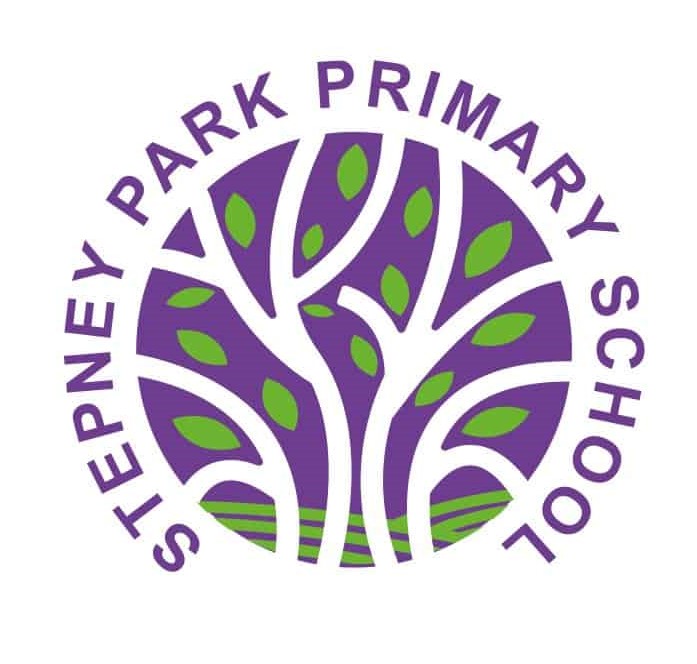Early Years
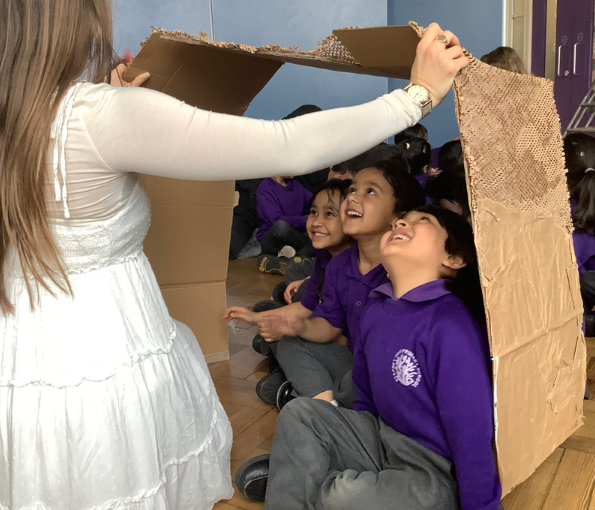
All the Areas of Learning are developed through our stimulating and engaging curriculum.
We have a nurturing and inclusive environment which provides a safe space for children to develop and grow. We aim for all children to meet their potential by providing a breadth of stimulating and exciting experiences which foster their desire to participate and try their best.
Children in our EYFS are curious, happy and caring.
Great Communicators
We aim for our children to become confident communicators. We see this as building relationships that encourage communication, and giving children the language and clear vocabulary with which to communicate effectively. We promote effective communication within our staff team, and with parents, by ensuring an ethos where everyone feels safe to express their views and needs.
Songs, stories and rhymes are at the heart of our teaching and learning in Early Years to support children’s language development.
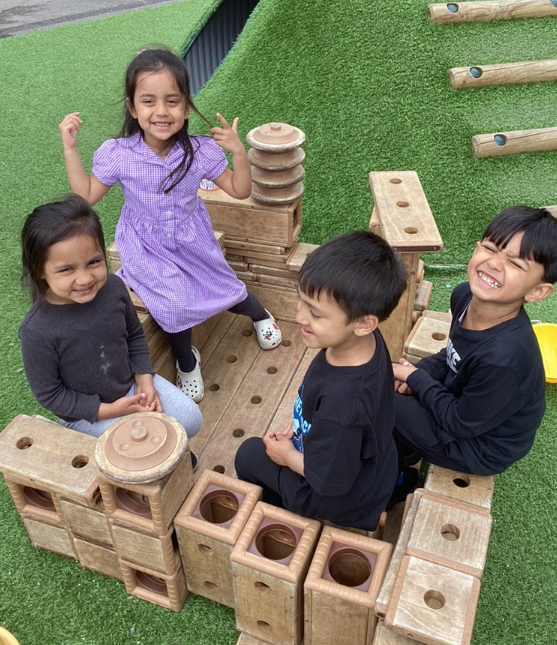
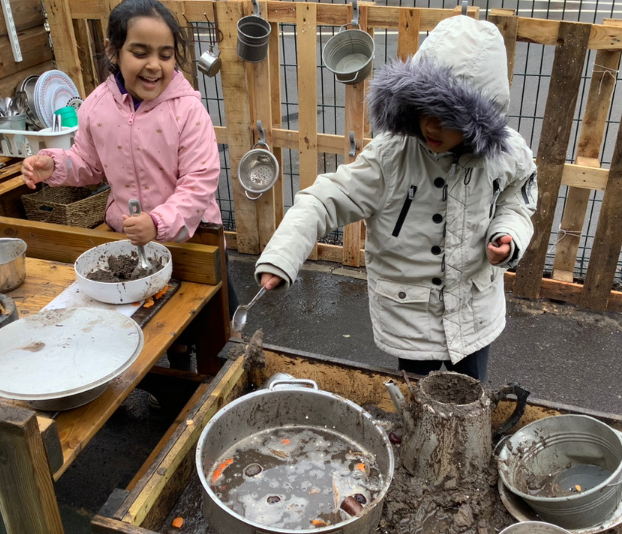
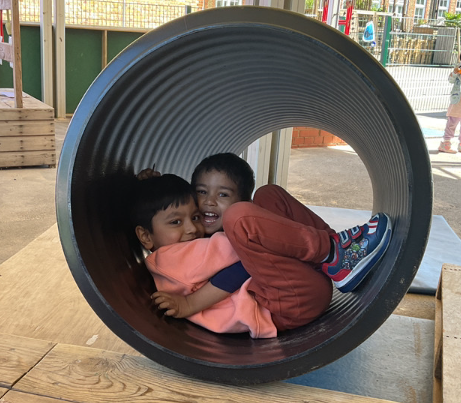
Respect, Independence, Resilience
Respect, Independence and Resilience are our whole school values and support our PSED curriculum.
Respect
Children will learn to be aware of, and celebrate the religious and cultural diversity in our community and beyond. They learn that they have rights and to respect others. They learn the importance of good manners and polite use of language.
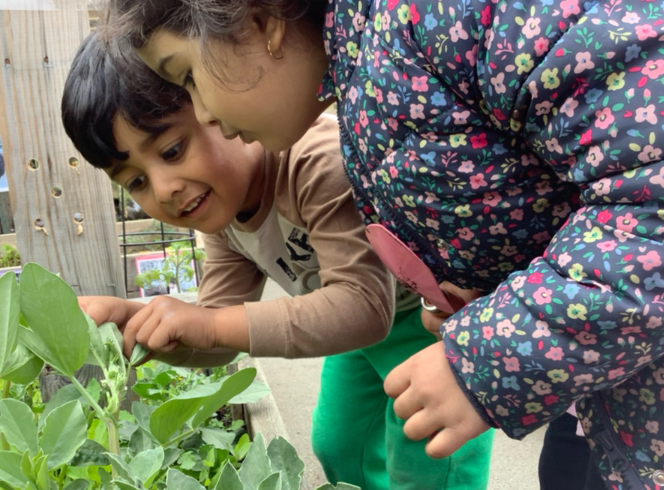
Independence
Our children are encouraged to be confident, engaged and curious. They display active learning and are encouraged to explore and follow their own interests. They are not over-reliant on adult direction or overly led by other children. They learn how to show engagement in their learning, taking responsibility, creating and welcoming all opportunities. They have their own interests which in turn are valued by the school community.
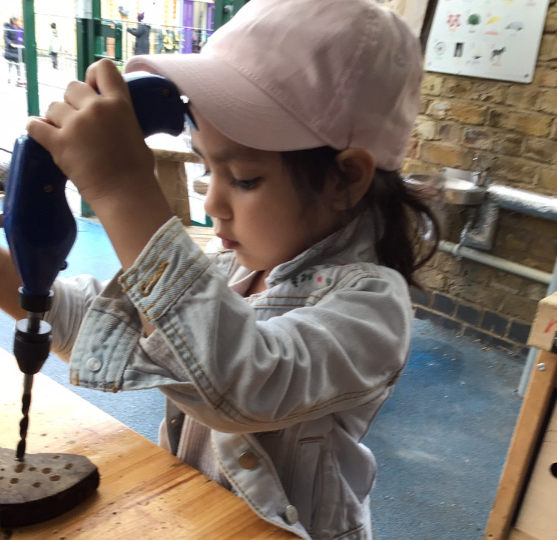
Resilience
We encourage our children to be risk-takers. They learn how to cope with change and to take on challenges both physical and mental. They learn not to give up easily, and how to persevere and take risks.
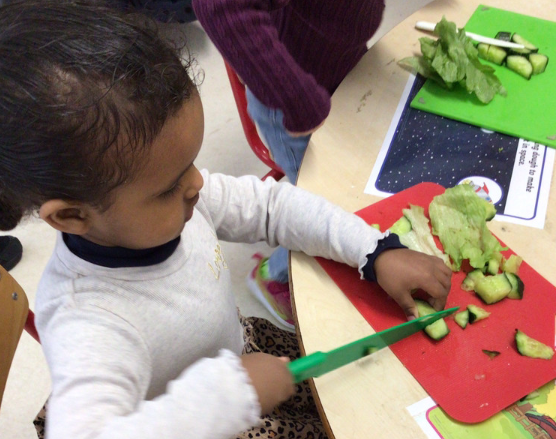
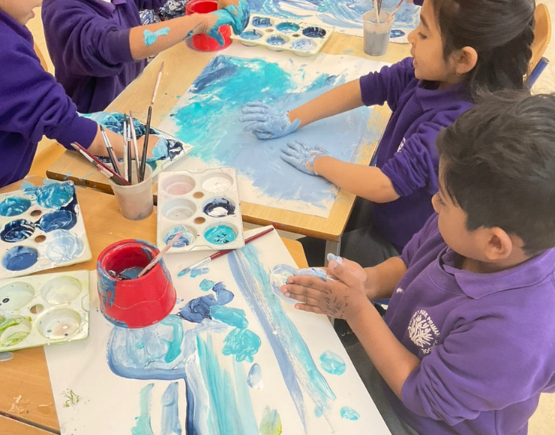
We ensure children are settled, happy and confident in the setting. Adults teach children how to use particular areas of the environment appropriately, use the resources, look after them and tidy up.
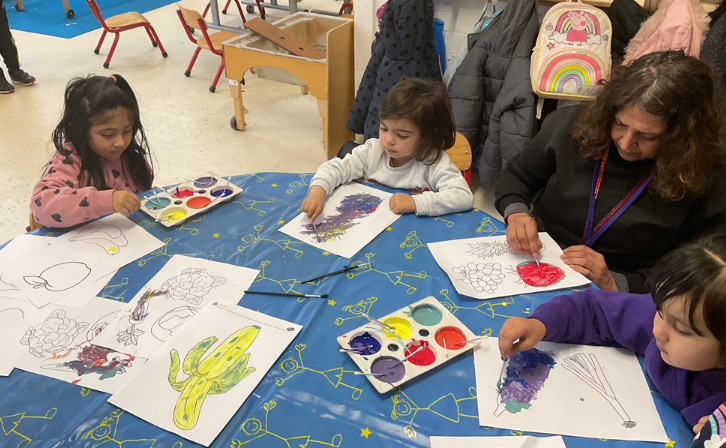
Adults spend time modelling how to engage with learning, developing vocabulary and demonstrating skills and supporting children with their interactions.
We welcome visitors to our Early Years so contact the school office if you'd like to come and see our setting.
Characteristics of Effective Learning
We know that HOW children learn is crucial to their time at school. We help them become learners through: Playing and exploring; Creating and Critical Thinking and Active Learning. All adults take time to model how to learn, play and explore and are role models for the children. 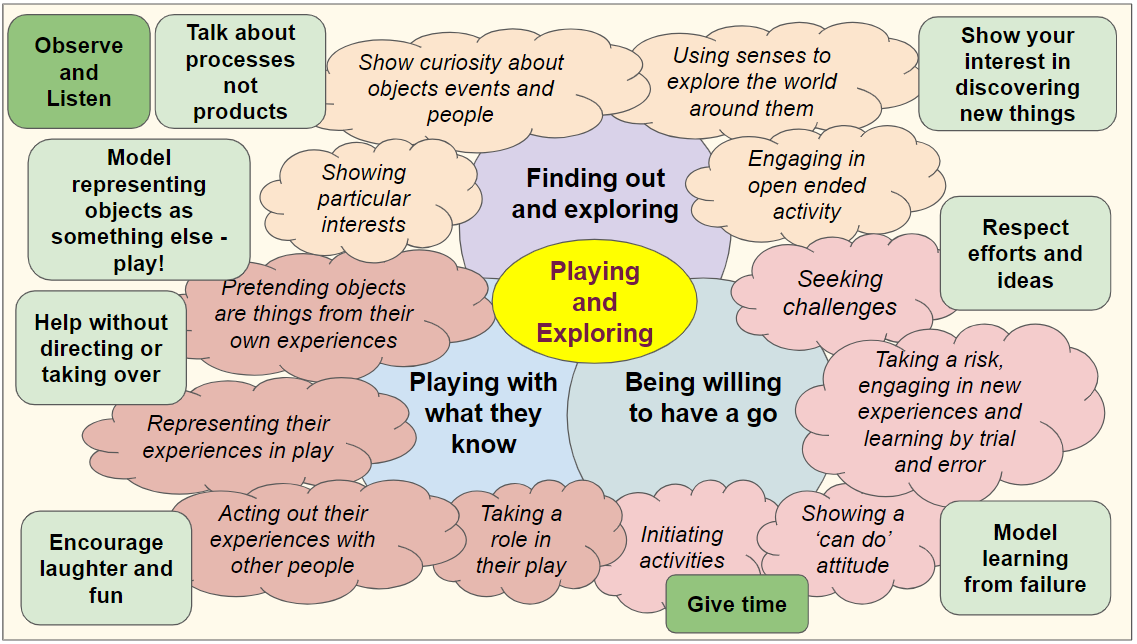
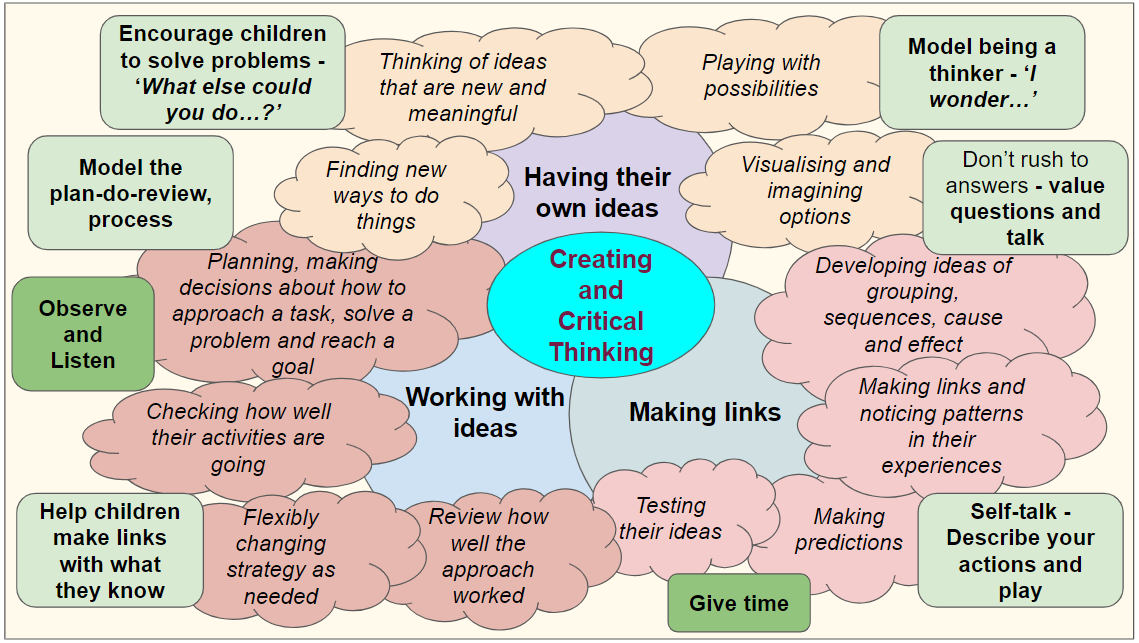
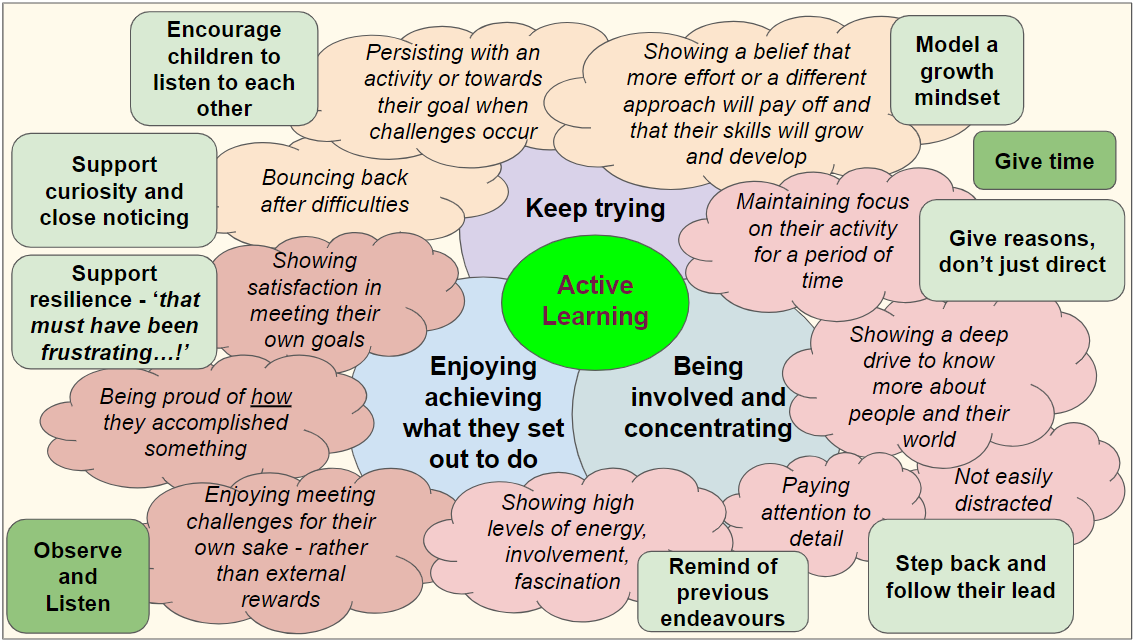
A Love of Reading
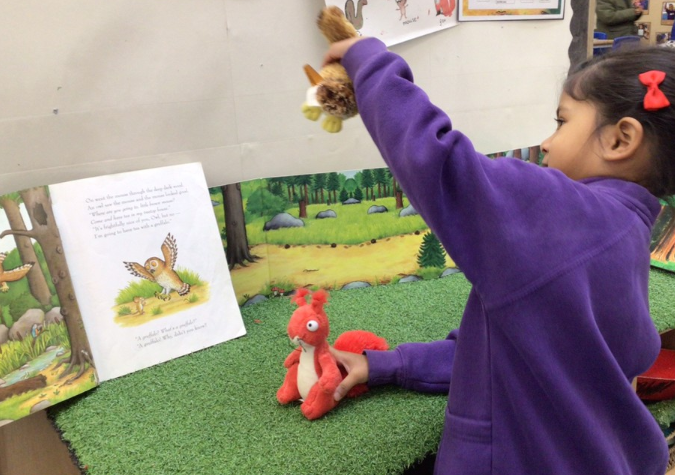
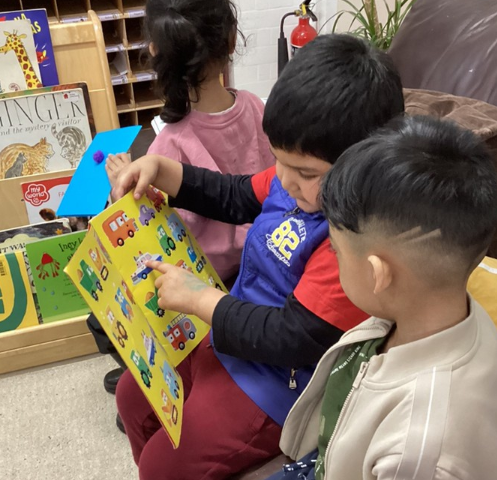
We want all our pupils to develop a love of reading. Reading feeds pupils’ imaginations and opens up a treasure house of wonder and joy for curious young minds. Pupils at Stepney Park Primary School are encouraged to read for pleasure as well as to support their acquisition of knowledge.
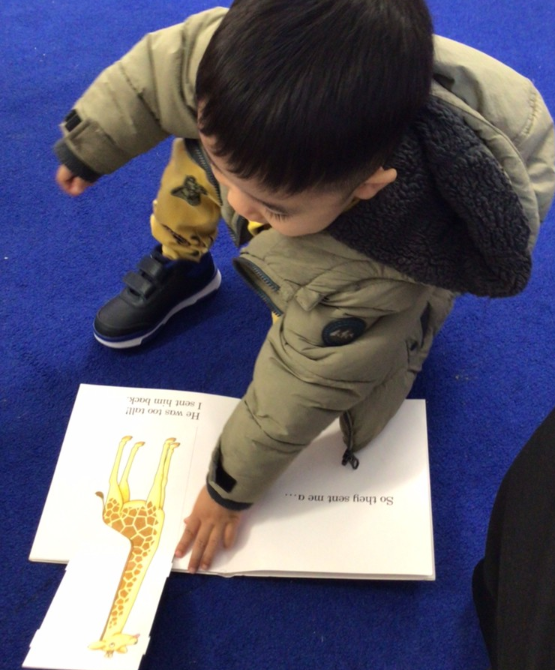
Our engaging core texts are easily accessible in the environment and can be sent home to enable children to revisit and deepen their love and understanding of these high quality texts. Book corners are inviting and engaging with a wide range of high quality texts available to children always.
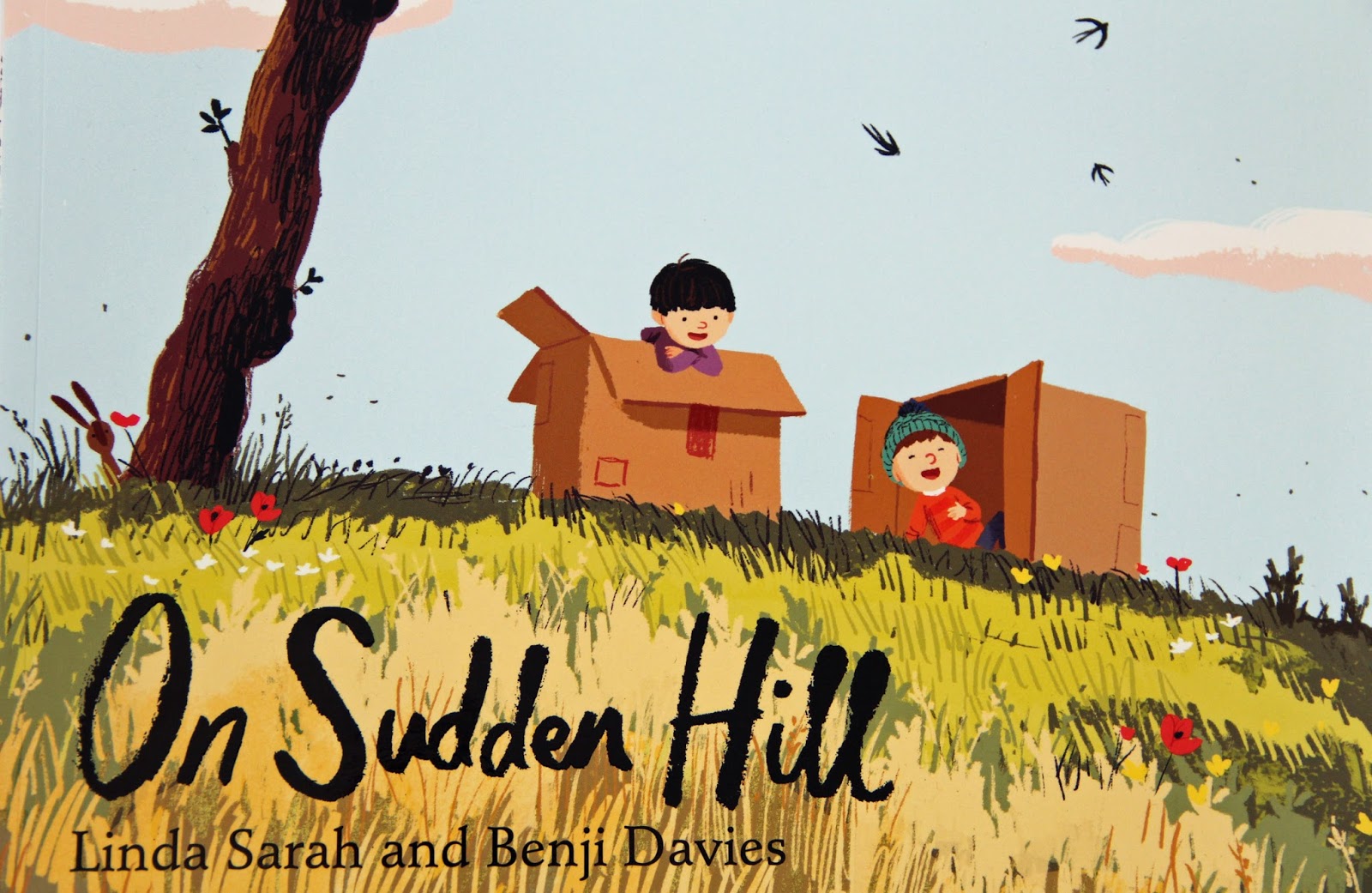


Non-Fiction books help to develop our Understanding of the World.

In Nursery and Reception, Aspects of Phase 1 phonics are developed through high quality Phase 1 picture books throughout the year. These texts are also highly successful at supporting the children to settle into their new class.



Decodable Bug Club books are used to support the development of reading when phonics is introduced from Phase 2, and we follow the Tower Hamlets Phonics Programme. See the English section of the website for more information.

Purposeful Writing
In order to create meaningful writing opportunities, staff plan a wide range of activities and experiences that build upon and extend children’s knowledge, experiences and interests.
Throughout Early Years, children are provided with a wide range of mark making opportunities across all 7 areas of learning. Staff plan to use both the indoor and outdoor environment and resources for writing are readily available both inside and outside. Multiple tools and materials for mark making are available to the children at all times, our environment displays many models of writing, mnemonic cards are available to children at all times as well as alphabet friezes.
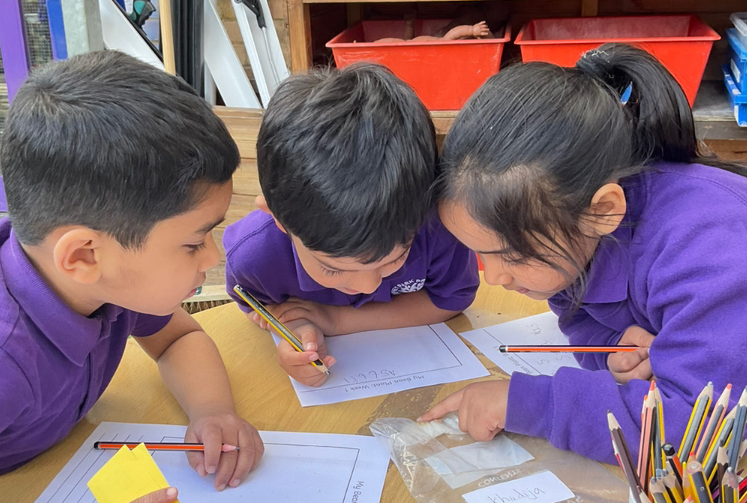
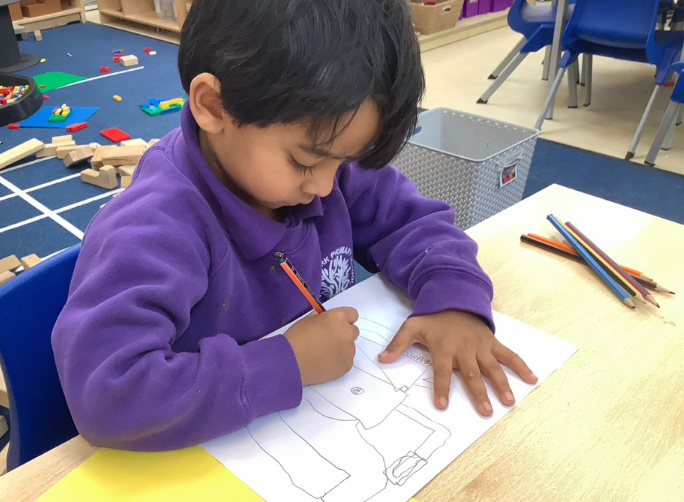
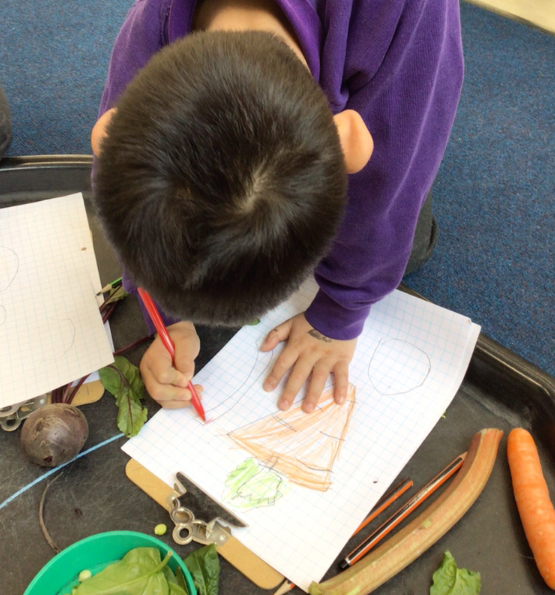
Mark making and writing is also developed through the use of high quality, core texts and a range of literature linking to themes and core texts as well as language rich activities, so pupils develop ideas for writing. Adults skilfully incorporate activities and opportunities into their interactions following children’s interests and staff observations of the children feed into creating meaningful opportunities for writing.
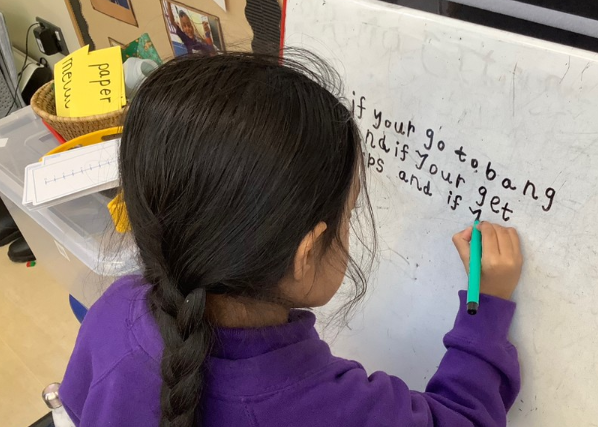
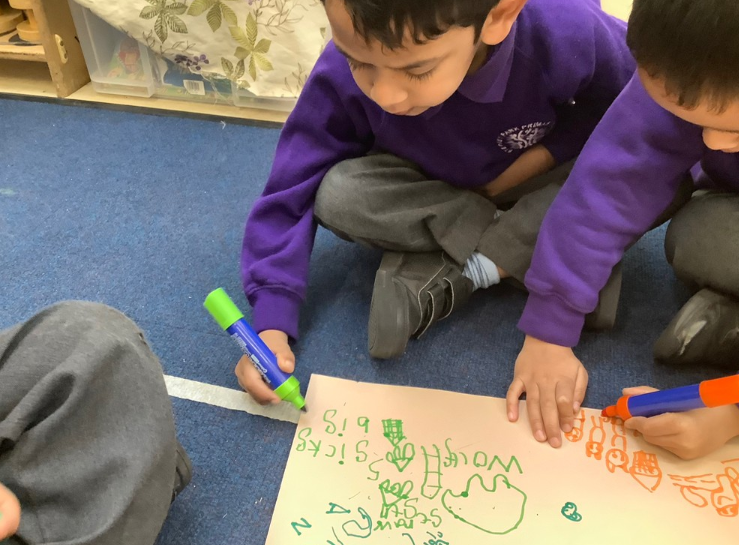
Meaningful Maths
Opportunities to develop children’s mathematical thinking and understanding are embedded into every day practise in Nursery and Reception. The environment is set up to encourage this e.g. shadowing, sizing of resources and storing of resources. Staff also use every opportunity to also support this, by incorporating maths into everyday routines and interactions such as tidying up, lunchtimes, morning routines.
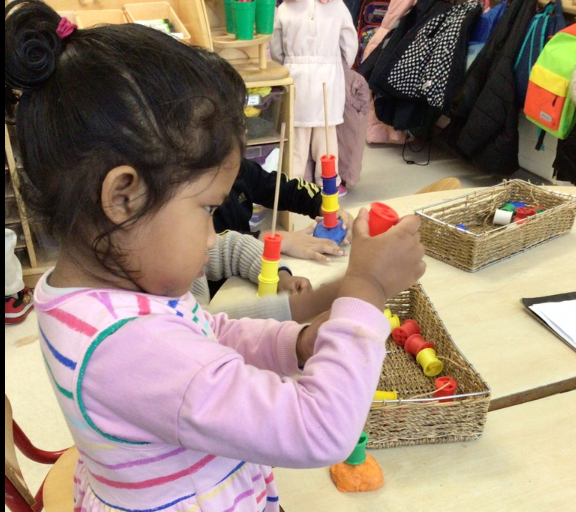
Resources are carefully thought out and available to further children’s mathematical skills in the continuous provision, and additional resources are also planned out onto the provision plans. Maths is also a focus for outdoor learning as this environment provides a natural and stimulating experience for children to develop their maths skills. Daily maths activities are planned into both the Nursery and Reception day.
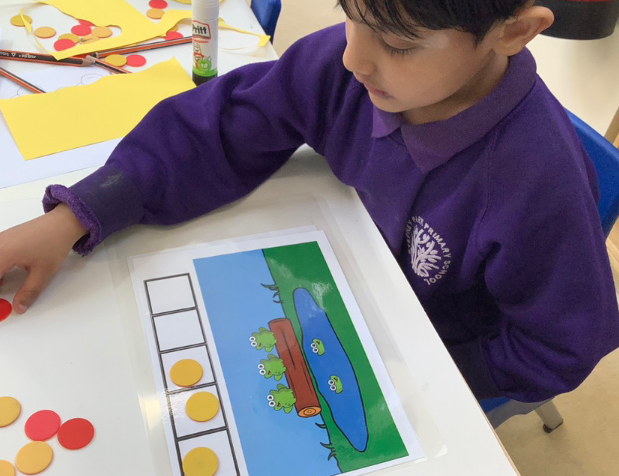
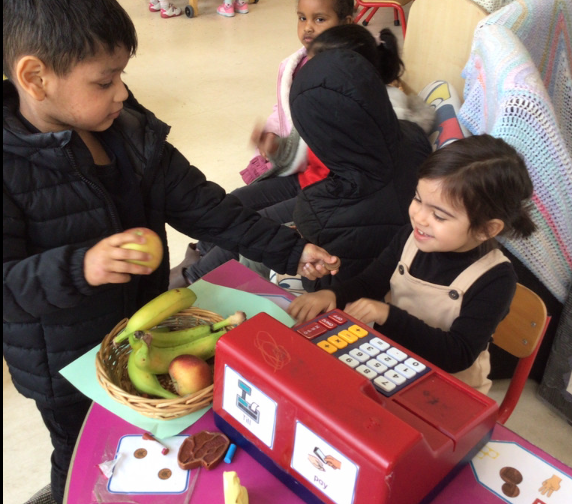
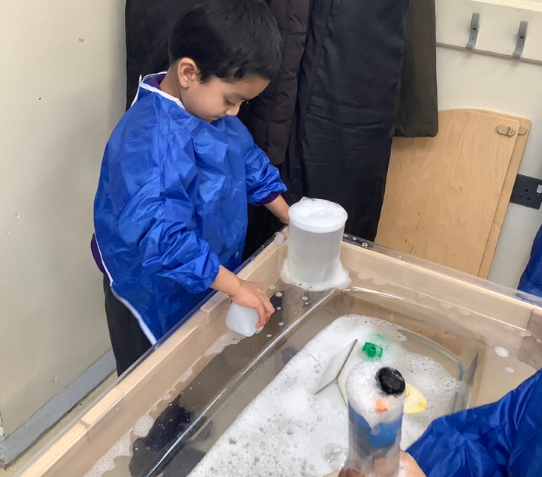
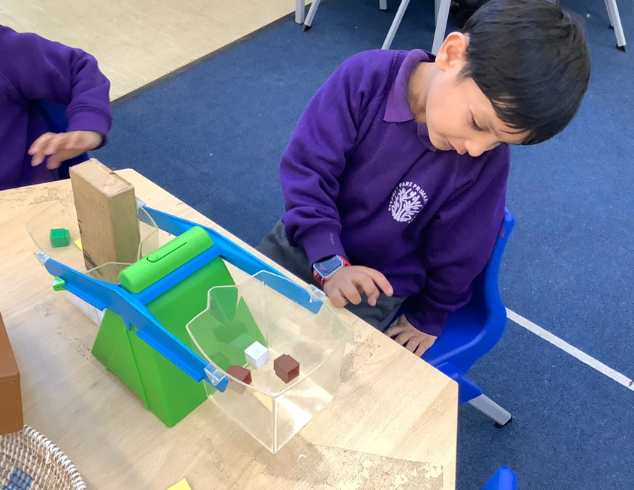
In Reception we use the White Rose curriculum to teach maths.
Learning Outside
All children have continuous access to the outdoor environment. They are encouraged to experience a variety of activities outside, including opportunities to explore and care for the natural world and develop large motor skills and movements.
Children love to feed and observe the chickens, challenge themselves on climbing equipment and find corners to talk and read. Our mud kitchens allow for messy play and lots of fun!
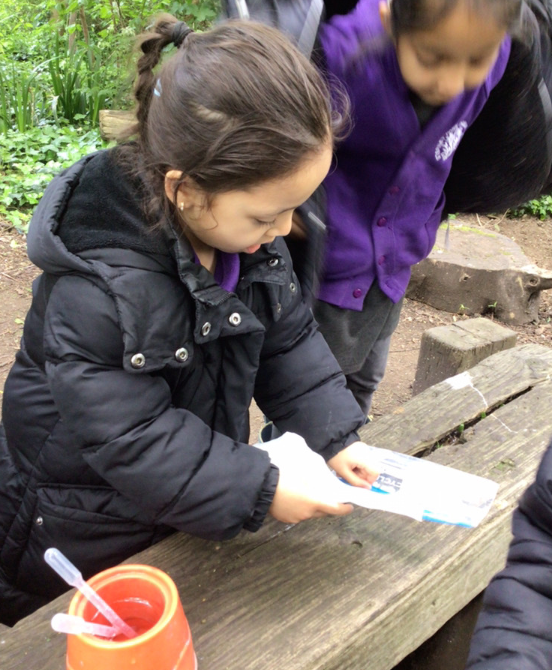
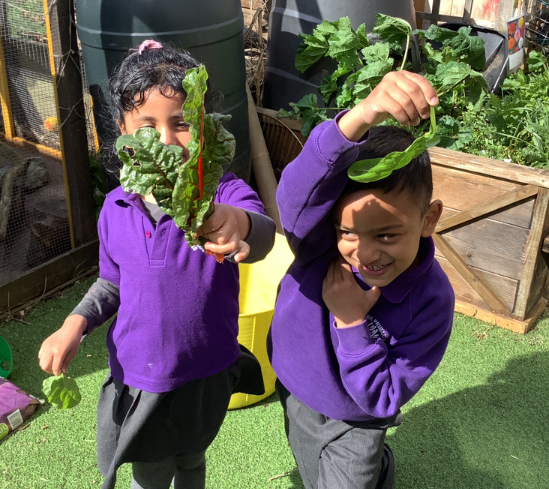
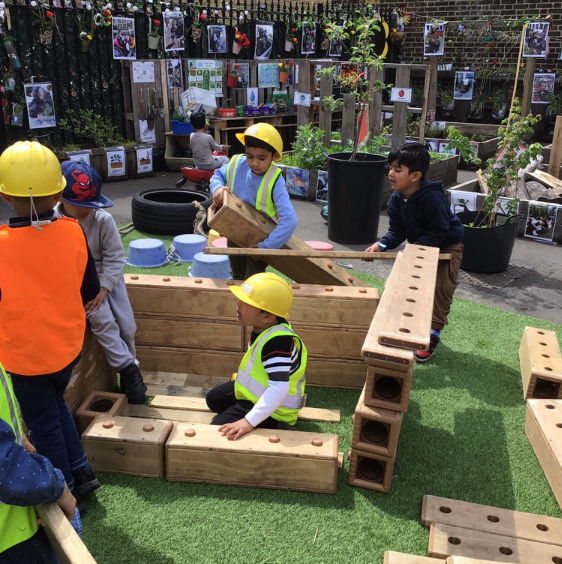
In Nursery and Reception the outside environment is regularly enhanced to encourage all children to use it and provide new exciting stimulus. It provides quiet corners to read and write as well as space to run and play.
Woodlands
Children in our Early Years visit the woodlands every week to enhance their learning. We explore nature, reenact stories and develop our physical development. The woodlands provides a magical place for children to explore and learn together.

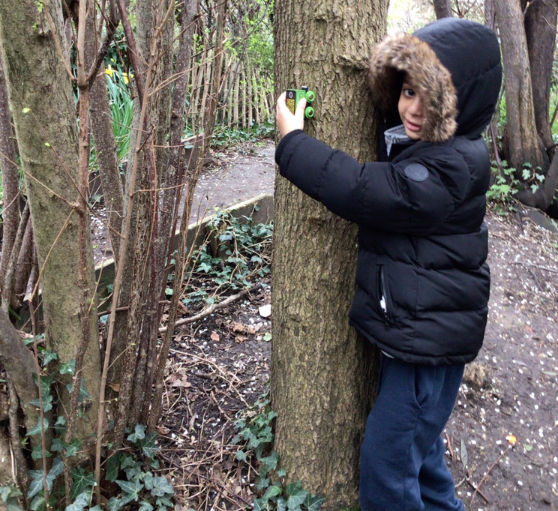


We develop our confidence, gross motor skills and understanding of the world when we are outside.
Trips and Experiences
Each term we have visits to develop our understanding of the local area and wider London. These help develop our Understanding of the World and our Personal and Social education and enhance Cultural Capital. We enjoy the support of parents and carers on our visits.
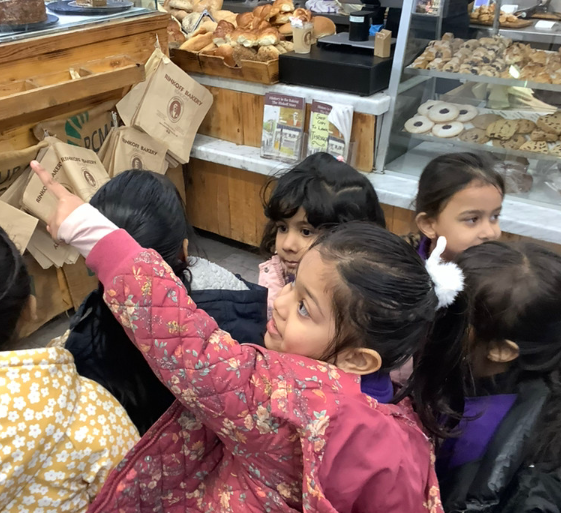

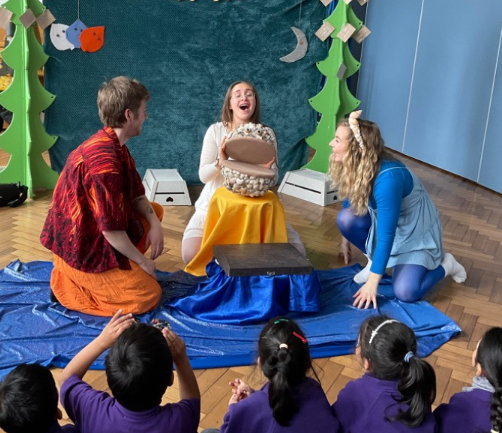
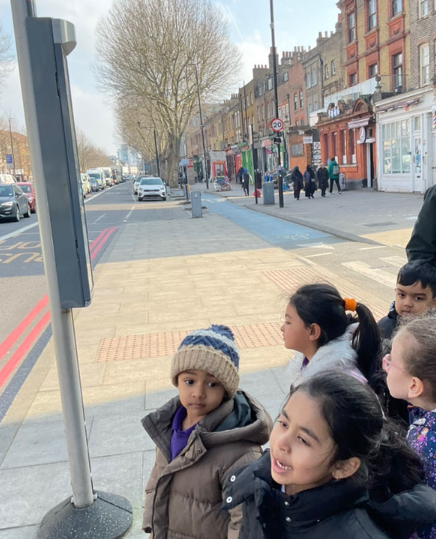
Nursery Core Rhymes for Maths
Each term in Nursery, we introduce a new rhyme to help develop our counting skills.
Core Maths Nursery Rhymes
Click on the links below to take you to fun, interactive videos to help you learn the rhyme at home.
| Hickory dickory dock |  |
|
|
|
| Baa baa black sheep |  |
| 5 currant buns |  |
| 1 man went to mow |  |
| Five Little Ducks |  |
| One tomato |  |
| Zoom, zoom, zoom |  |
| Ten green bottles |  |
| One, two buckle my shoe |  |
There are more examples of the rhymes we learn in Nursery on our curriculum overview, below.
The BBC website has a fantastic range of rhymes and songs with engaging videos to keep your children entertained whilst developing their language. Enjoy it here.

Curriculum Overviews for Early Years
We have carefully created a curriculum in our Nursery and Reception which provides a strong teaching base for all the Prime Areas to be developed and for teachers and all staff to have a firm understanding as to our aspirations for what we want all our children to learn.
We are proud of a curriculum that fully prepares all children to continue their future education into Year 1, and beyond.
Our curriculum themes and content are continually enhanced and adapted, following the children's interests and in response to topical events. We use our careful interactions and observations of children to respond to their developmental needs.
Our curriculum for Nursery and Reception is based on the principles of the non-statutory guidance for the early years foundation stage contained in the Department for Education's Development Matters documents.
Read more in the year group overviews below.
Nursery Curriculum Overview

The full curriculum is attached below. This includes a breakdown of our Nursery Goals.
Reception Curriculum Overview

The full curriculum is attached below. This includes the core vocabulary for Reception.
"Parents’ interest and involvement in their children’s learning is consistently associated with positive outcomes for children of all age groups."
Communication at Home

Education researchers have produced this really useful booklet to support parents with talking with their children. We have attached it below.
It includes information on Key things to remember when speaking with your child and Ideas and phrases for different activities.
Some examples of things that you can do every day are:
• 5-10 minutes of speaking together, 3 or 4 times a week
• Quiet, uninterrupted time with no distractions
• Give your child a choice of game/activity to play
• Get down on your child’s level
• Use eye contact
• Make sure you can see each other’s facial expressions

We know you will find it useful.
E1 Schools East Partnership have produced this useful booklet to prepare for school.
"Ready for Reception: Helping to get your child prepared for school"
Development Matters
See below for the Development Matters document which is the governments non-statutory curriculum guidance. We have used this to help design our EYFS curriculum. A link to the whole document is here.
For further information for Parents, see the 'Birth to Five Matters, parent leaflet' and the 'What to Expect in the Early Years' documents below. They will give you information on child development from Birth to Five, practical guidance and suggestions for supporting at home and a clear overview of the whole early years curriculum.
